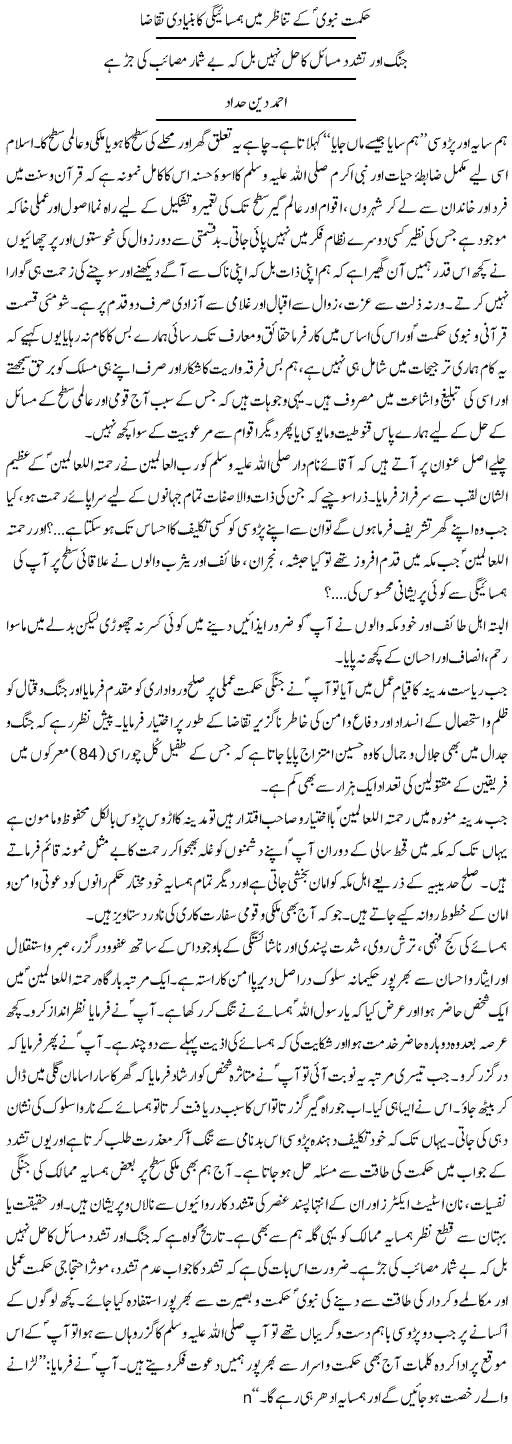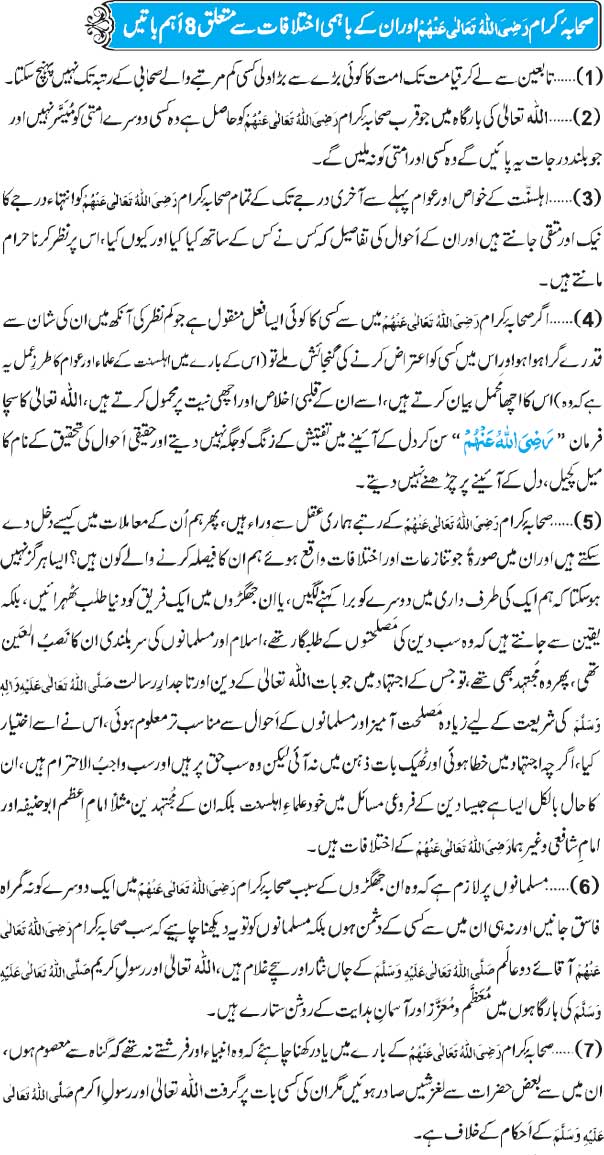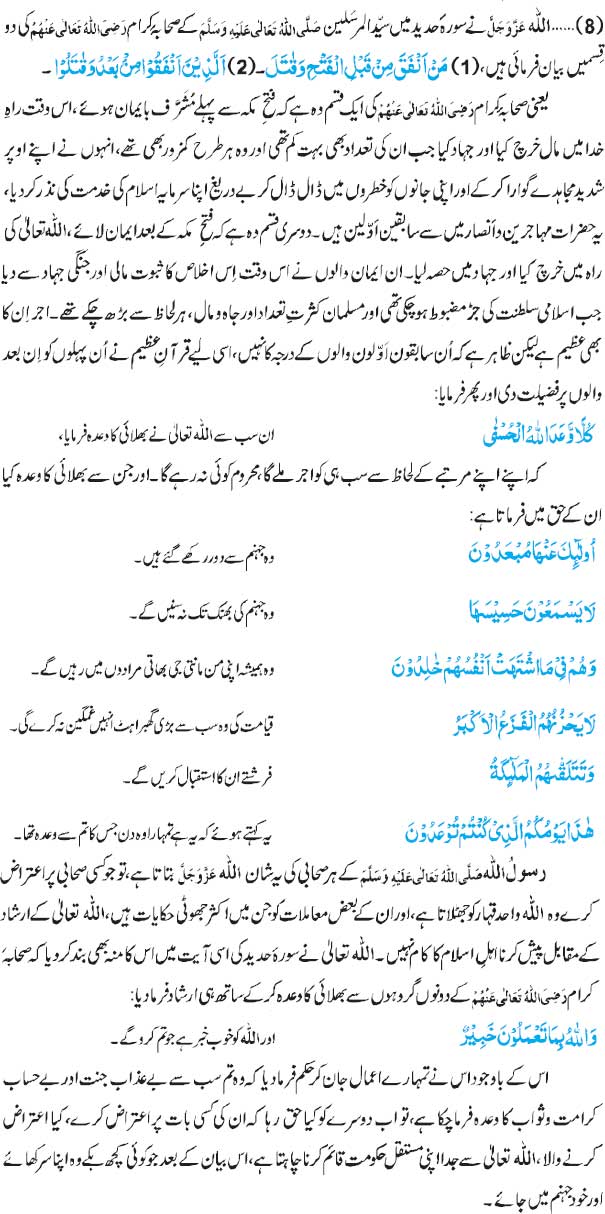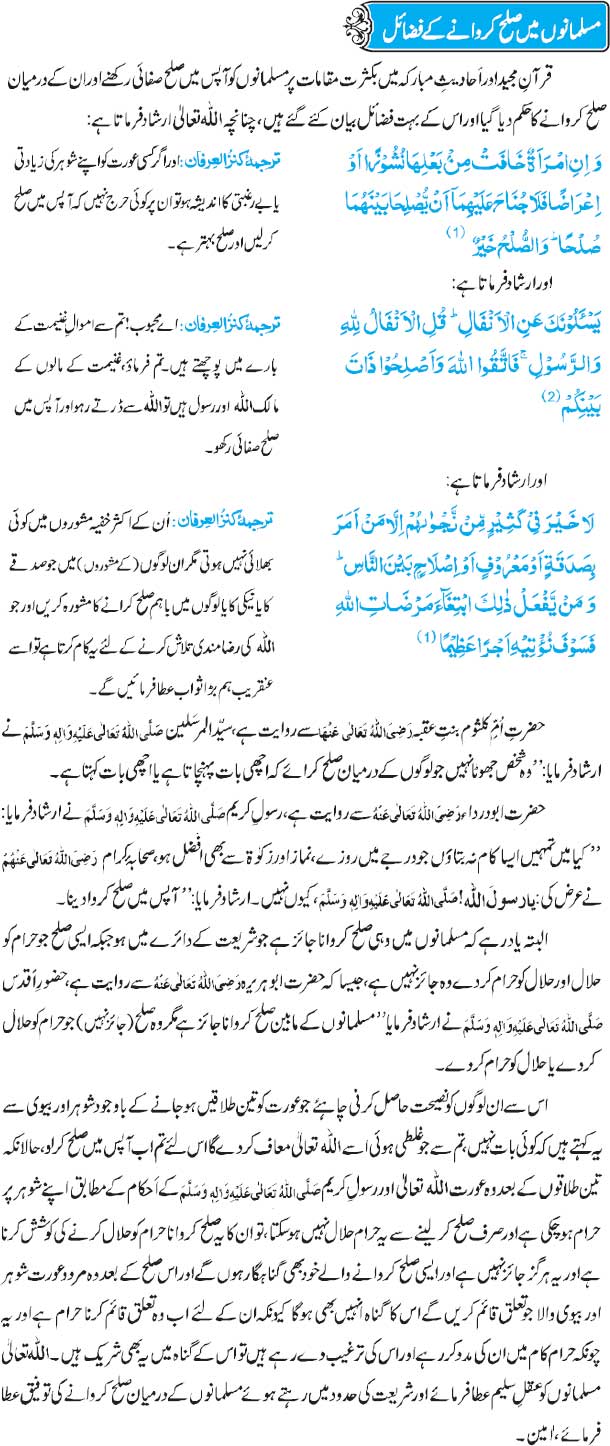
Muslim Parenting Guide: How to Raise Children in Islam
Providing children with Islamic education and raising them up as good practicing Muslims are essential duties of parenthood.
Rightfully fulfilling these duties will lead to the Pleasure of Allah and good for the parents and the child in this life and the Hereafter.
However, ignoring these duties would lead to the destruction of the child’s Hereafter, and the Wrath of Allah will befall the parents for not protecting their child from the traps of Shaytan and allowing him to choose the path of destruction.
Allah’s Messenger (peace and blessings be upon him) said: “Each of you is a shepherd and each of you is responsible for his flock. The leader is a shepherd and is responsible for his flock,
a man is the shepherd of his family and is responsible for his flock;
a woman is the shepherd in the house of her husband and is responsible for her flock,
the servant is the shepherd of his master’s wealth and is responsible for it.
Each of you is a shepherd and is responsible for his flock.”
[Sahih al-Bukhari and Sahih Muslim]
Allah says in the Quran: “O you who believe! Save yourselves and your family from a fire whose Fuel is men and stones.” [Noble Quran 66:6]
One way to protect your children from the Fire is to let them memorize the Words of Allah.
The Prophet (peace and blessings be upon him) said: “If the Quran is gathered in a body (i.e. a person), Allah will not burn him with the Fire.” [al-Baihaqi, Authenticated by Sheikh al-Albani]
This is because the child from an early age will be protected from the temptations of the world and whispers of the Shaytan, he will live and grow up among the gathering of Dhikr (remembrance of Allah) where tranquility and the mercy of Allah descends, and as a result, Allah will preserve his Fitrah (natural inclination of Islamic Monotheism)
The Prophet (peace and blessings be upon him) said: “No people gather in a house of the houses of Allah (i.e. Masjid) reciting the Book of Allah and studying it among themselves, except that the tranquility descends upon them, and Allah mentions them to those who are with Him (the lofty gathering of Angels).” [Sahih Muslim]
Your child will be given a position in Paradise according to the number of verses he memorizes from the Book of Allah, it will be said to him on the Day of Judgment as the Prophet (peace and blessings be upon him) said:
“‘Read, ascend and recite with slow, rhythmic chanting just as you used to recite in the worldly life. For verily, your position (in Paradise) will be at the place of the last verse that you recite.” [Abu Dawud and at-Tirmidhi]
Every time your child goes to the Masjid to learn the Quran he will have the reward of a perfect Hajj.
The Prophet (peace and blessings be upon him) said: “Whoever goes to the Masjid in the morning having no intention except to learn something good or teach it he will have the reward like the person who performs Hajj.”
[At-Tabari. Authenticated by Sheikh al-Albani]
The Prophet (peace and blessings be upon him) said to Abu Dharr, “O Abu Dharr! That you set out in the morning and learn one verse from the Book of Allah is better for you than if you prayed one hundred Rakahs (units of prayer).” [Ibn Majah]
The Quran will intercede for your child on the Day of Judgment, Allah’s Messenger (peace and blessings be upon him) said: “Recite the Quran for verily it will come on the Day of Judgment as an intercessor for those who recited it.”
[Sahih Muslim]
Your child will be given to wear garments and a crown of honor on the Day of Judgment.
The Prophet (peace and blessings be upon him) said: “The Quran will come on the Day of Judgment and say, ‘Oh Lord! Adorn him.’ So the person will be made to wear the crown of honor. Then it (the Quran) will say, ‘Oh Lord! Increase him.’ So the person will be made to wear the garment of honor. Then it will say, ‘Oh Lord! Be pleased with him.’ So Allah will be pleased with him. Then it will be said, ‘Recite and ascend.’ And the person will receive an extra good deeds for every verse (that he recites of the Quran.)” [Sahih at-Tirmidhi]
The Prophet (peace and blessings be upon him) said: “Whoever recites the Quran, learns it, and acts upon it will be given a crown of light to wear on the Day of Judgment and its light will be like the light of the sun.” [Sahih al-Hakim]
So, why not encourage our children to memorize the Quran and make them one of the best individuals of this Ummah.
Allah’s Messenger (peace and blessings be upon him) said: “The best of you are those who learn the Quran and teach it.” [Sahih al-Bukhari]
Allah, the Exalted, has also promised abundant rewards for those parents who guide their children to memorize the Quran.
The Prophet (peace and blessings be upon him) said: “Whoever recites the Quran, learns it, and acts according to it will be given a crown of light to wear on the Day of Judgment whose light will be like the sun. His parents will be clothed in two garments that did not exist in this worldly life. So they will say, ‘What has caused us to be clothed (in these garments)?’ It will be said, ‘Your child taking hold of (i.e. memorizing) the Quran has caused this.'” [Al-Hakim graded it authentic]
When the parents leave a righteous child behind them, the child will be a source of reward and blessing for them after their death, for Allah’s Messenger (peace and blessings be upon him) said: “When a man dies, all his good deeds come to an end, except for three cases;
the charity of continuous blessings,
beneficial knowledge that he leaves behind,
and a righteous child who prays for him.” [Sahih Muslim]
The parents will also receive an equal amount of reward that the child receives by memorizing or reciting the Quran, for the parents guide him to this good act and instill in his heart the love for Islam, and the love for the Book of Allah.
The Prophet (peace and blessings be upon him) said: “Whoever guides to something good is like the one who does it.” [Sahih Muslim]
“Whoever invites guidance will receive the reward like the rewards of those who follow him and that will not diminish anything from their rewards…” [Sahih Muslim]
The parents should also send those children who are intelligent and bright to learn the Quran and Islamic education.
It should not be that only those children who when are unsuccessful in worldly studies are sent to Madrasas for religious studies.
The parents should realize the importance of Islamic education for their children and raise well-educated Muslims who would in the future work for the Cause of Islam.
The Prophet (peace and blessings be upon him) said: “The example of guidance and knowledge with which, Allah has sent me is like abundant rain falling on the earth, some of which was fertile soil, absorbed rain water and brought forth vegetation and grass in abundance. (And) another portion of it was hard and held the rainwater and Allah benefited the people with it and they utilized it for drinking, making their animals drink from it, and for irrigation of the land for cultivation. (And) a portion of it was barren which could neither hold the water nor bring forth vegetation (then that land gave no benefits).
The first is the example of the person who comprehends Allah’s religion and gets the benefit (from the knowledge), which Allah has revealed through me (the Prophet) and learns and then teaches others.
The last example is that of a person who does not care for it and does not take Allah’s guidance revealed through me (He is like that barren land.)” [Sahih al-Bukhari v.1 no.79]
Those parents who give the excuse that their child is weak or does not have a good memory or ‘he is not gifted’, should know that Allah has said in the Quran: “And indeed we have made the Quran easy to remember.” [Noble Quran 54:17]
And the Messenger of Allah (peace and blessings be upon him) said: “Whoever treads on a path in search of Islamic knowledge, Allah will ease the way to Paradise for him. The Angels will lower their wings, pleased with this seeker of knowledge, and everyone in the heavens and on earth will ask forgiveness for the knowledgeable person, even the fish in the deepest of waters will ask for his forgiveness.” [Sahih Abu Dawud, Ibn Majah and at-Tirmidhi (2835)]
It is not mandatory for your child to memorize the complete Quran. If he is not able to memorize the complete Quran then know that only attending daily circle for memorization will suffice for your child for it will accustom him to frequent the places of worship rather than visiting evil gatherings.
Your child will find good companions which will protect him from deviating and adopting evil habits and practices.
Allah says: “And keep yourself patiently with those who call on their Lord, morning and afternoon, seeking His Face and let not your eyes overlook them, desiring the pomp and glitter of the life of the world; and obey not him whose hearts We have made heedless of Our Remembrance, one who follows his own lust and whose affairs (deeds) have been lost.” [Noble Quran 18:28]
- October, 19
- 2595
- Human Rights
- More
Sahaba Karam RA Aur Unn Kay Bahmi Ikhtilafat


Allah The Exalted, Erases Small Sins, If You Avoid Major Sins
[ALLAH’S Quran – 4:31] “If you avoid and refrain from committing the major sins which have been forbidden unto you, We will grant you remission for your iniquities and admit you into favor and grant you an honorable entry into the realm of bliss and the beatitude of heaven.”
The Prophet (peace be upon him) has said: {Excerpted from Ibn Kathir Commentary for [4:31]}
“Imam Ahmad recorded that Salman Al-Farisi said, “The Prophet said to me, `Do you know what the day of Al-Jumu`ah is’ I said, `It is the day during which Allah brought together the creation of your father (Adam).’ He said, (I know what the day of Jumu`ah is. Anyone who takes a bath and cleans himself as much as he can and then proceeds for the Friday prayer and remains quiet until the Imam finishes the prayer, all his sins in between the present and the next Friday will be forgiven, as long as major sins were avoided.)”
[Bukhari – Book #51, Hadith #28] “Narrated Abu Huraira: The Prophet said, “Avoid the seven great destructive sins.” The people enquire, “O Allah’s Apostle! What are they? “He said, “To join others in worship along with Allah, to practice sorcery, to kill the life which Allah has forbidden except for a just cause, (according to Islamic law), to eat up Riba (usury), to eat up an orphan’s wealth, to give back to the enemy and fleeing from the battlefield at the time of fighting, and to accuse, chaste women, who never even think of anything touching chastity and are good believers.”
[Bukhari – Book #34, Hadith #267] “Narrated An-Nu’man bin Bashir: The Prophet said “Both legal and illegal things are obvious, and in between, them are (suspicious) doubtful matters. So whoever forsakes those doubtful things lest he may commit a sin, will definitely avoid what is clearly illegal; and whoever indulges in these (suspicious) doubtful things bravely, is likely to commit what is clearly illegal. sins are Allah’s Hima (i.e. private pasture) and whoever pastures (his sheep) near it, is likely to get in it at any moment.”
Namaz Ba Jamat Kay Ahkam

The Only Promise In Life
Allah (ʿazza wa jal) says in Surah Ali ‘Imran: “Every soul will taste death”[1]
In this ayah, Allah succinctly informs us of a sure reality. As is often said, you can be sure of nothing in life, except that its conclusion is death. Indeed, it is the only event in your life that can be guaranteed, and this is universally accepted knowledge. Even the staunchest of atheists cannot deny this fact, and no sane individual would reject it. Indeed, there is no doubt that every reader of this article is well-aware of this certainty.
The problem, however, is that we often only hold this belief superficially. We all know of death, but we know it only as an abstract concept – as a theory – and many of us do not actualize this knowledge. What is meant by this is that we know that we will die one day, and yet death seems distant. We feel safe from it. “It’s going to happen,” we think, “but not now.” And the proof of this is in our actions. Had we truly internalized the certainty of death, we would never have allowed ourselves to commit that last sin, knowing with conviction that it could have been our last and final action. We always feel safe, and take for granted that we have time to perform tawbah(repentance). But, who guaranteed us this time? And what is it that has made us feel safe to fall into that sin? How many of us have witnessed parents, grandparents, siblings, children, and friends return to Allah with their deeds? When, then, will we wake up to this inescapable reality?
During my medical studies, I have spent much time in various hospitals and I have spoken to more patients than I can remember. I have witnessed first-hand people facing death. I have spoken to individuals informed that they have contracted terminal illnesses struggling to come to terms with the short time they had left. I have seen healthy individuals rushed to Accident & Emergency in critical states following road traffic accidents. Those I have seen on the brink of death have been as diverse as any British high street… They were old and they were young. They were male and they were female. They were frail or out of shape and they were at peak physical fitness. They were of every race, nationality, and religion. There was one thing, and only one thing, that they had in common. Not one of them expected it. None would have denied that they would die at some point, and yet, each one of them was surprised when death came near.
We do not expect death, and those who have faced it, too, did not expect it… So what is it that makes us feel safe? Did you know that there are illnesses where the first symptom is sudden death? What makes us think that we do not have such a condition? What makes us confident that when we next leave our homes we will not be hit by a car or a truck? Were you to die tomorrow, would you be satisfied with your day today knowing it would be your last? Even in this very example, I have fallen into the aforementioned mistake and treated death as something distant. By Allah, you could die where you are sitting or standing now, and your next breath could be your last. So are you content with your deeds now, knowing that you may have no more time to act?
This is what is meant by actualizing and internalizing our knowledge of death. It is having a sense of urgency and viewing death as something imminent.. With this kind of knowledge, we can truly hold ourselves to account.
As Allah (subḥanahu wa taʿala) says in Surah Al Hashr:
“O you who have believed, fear Allah. And let every soul look to what it has put forth for tomorrow – and fear Allah. Indeed, Allah is Acquainted with what you do.”[2]
Allah reminds the believers to focus on what we have prepared for what is to come next, i.e., have it at the forefront of our minds. Likewise, the Messenger (sall Allahu ʿalayhi wa sallam) said, “Three things follow the deceased person (to the grave), two of them return, and only one remains. His family, wealth, and actions follow him. His family and wealth return, but his deeds will remain.”[3]
So be mindful of the deeds that you have prepared as these will be all that we keep when we meet our end.
As ʿUmar b. Al-Khattab (raḍiy Allahu ʿanhu) advised, “Bring yourself to account before you are taken to account. Weigh your deeds before your deeds are weighed.” From amongst the best ways to do this is to remember death frequently and be in regular remembrance of Allah and His book, whilst regularly self-evaluating our preparation for the Hereafter.
I conclude with a powerful reminder that I once heard and has stuck with me since: “You will die.
Don’t let the moment your limbs fall limp be the first time that they are free from sin.
Don’t let the moment your eyes shut for the last time be the first time that you lower your gaze.
Don’t let your last breath be the first time your tongue is free from evil speech.
Don’t let the time you are wrapped in your burial shroud be the first time your ‘awrah is covered.
Don’t let your Janazah be the first time you are in the first rows in the masjid.”
In short, don’t let the day you die to be the first day that you live as a Muslim.
Notes:
[1] Al-Qur’an, 3:185
[2] Al-Qur’an, 59:18
[3] At-Tirmidhi
Sarf e Daulat Mein Aitadal

Towards Finding Inner Peace: Keeping Calm Is A Skill
A man might look calm and composed on the outside, but be a raging volcano within.
If you can keep calm when you are angry, then you have genuine self-control..
We should always be just and balanced in what we choose to say, whether we are happy or upset, whether we like what is happening or detest it. Calm manifests itself in our tone of voice, in the words we choose, in our gestures, our facial expressions, and our deportment.
We should keep in mind that our worship is not restricted to prayer, fasting, and the pilgrimage. Life itself is worship. We need to conduct ourselves accordingly.
Abu Huraira relates that a man approached the Prophet (peace be upon him) and said: “O Messenger of Allah! There is a woman who is well-known for how much she prays, fasts, and gives in charity, but she abuses her neighbors with her tongue.” The Prophet (peace be upon him) said: “She is in Hell.” (Authenticated by Al-Albani, 119)
Self-control means to refrain from responding recklessly to what goes on around us. It means to condition ourselves to respond appropriately according to our personal past experience and what we learn from the experience of others.
It is part of human nature to experience periods of intensity and periods of listlessness. It is related that the Prophet (peace be upon him) said: “Every activity has its period of intensity and then that intensity diminishes.” (Ibn Hibban)
Even revolutions and political upheavals follow this pattern. They are followed by the restructuring of civic life and normal political activity. Indeed, many people will feel quite uncomfortable with some of the slogans, demands, and principles they uttered during the revolutionary period, which may have seemed indispensable at the time. They feel great stress when dealing with the people who still want to structure public life around those slogans and ideas which they can now see are impractical or impossible.
Love is the same… It can begin with an irrational intensity, and then becomes a healthy and balanced love after marriage. It might weaken, retreat, or even die if it was not established on a sound foundation or if it is ruined by selfishness..
Composure resides in the fraction of a second between the provocation itself and the gut reaction to it. This is why the Prophet (peace be upon him) said: “Patience needs to be exercised when calamity first strikes.” (Al-Bukhari, 1302)
We learn from experience that it is much easier to say something than it is to carry it out.
We need to deal with every provocation in our lives as if it is being monitored by a hidden camera waiting to record our reaction to it and broadcast that reaction to the world.. This will make us react more judiciously and help us learn to control ourselves. This is because we know that composure and self-control are praiseworthy qualities, while reacting recklessly is a sign of feeblemindedness and weakness of character.
We learn from experience that it is much easier to say something than it is to carry it out. It is easy to get carried away by the heat of the moment because we do not want to accept that which upsets us.
Those who possess a measure of calm did not attain that skill overnight. They learned it after many attempts and just as many failures. They certainly suffered from indecision and disappointment on many occasions. However, they never gave up trying to better themselves. They took Allah’s promise to heart:
{And those who strive for Us – We will surely guide them to Our ways. And indeed, Allah is with the doers of good.} (29:69)
Here is where true piety and fear of Allah come into play. Allah says: {Indeed, those who lower their voices before the Messenger of Allah – they are the ones whose hearts Allah has tested for righteousness. For them is forgiveness and great reward.} (49:3)
This verse comes in chapter al-Hujurat which addresses a number of relevant issues, like commanding people not to raise their voices above that of the Prophet, not to spread rumors, not to slander people, not to make fun of them, and to avoid suspicion. This chapter of the Quran also strongly condemns racism, chauvinism, and dissension.
This chapter also includes the verse: {The Bedouins say, ‘We have believed.’ Say: ‘You have not [yet] believed; but say [instead], ‘We have submitted,’ for faith has not yet entered your hearts.}(49:14)
Exerting our every effort in positive work is not antithetical to keeping calm. It is the other face to keeping calm.
This means that true faith is a moral practice carried out on a high level that entails concern for how we deal with others and acknowledge their rights.
Looking at things positively, even the provocations and sorrows we face, is something that stems from our faith in Allah’s wisdom and our knowledge that nothing transpires in Creation except that He wills it so.
This gives us a new perspective on things. Since we expect the best from Allah, instead of reacting negatively, we act calmly and look to avail ourselves of the opportunities that our new set of circumstances presents to us.
Exerting our every effort in positive work is not antithetical to keeping calm. It is the other face to keeping calm. Productive and successful people are usually not the kind who are easily provoked. This is because they are people who are willing to work hard over the long haul to achieve results. They do not expect things instantly.
It is said that successfull leaders react calmly to emergencies and provocations as if they were normal happenings. This does not mean that they are unconcerned about what is going on, but rather that they keep themselves composed enough to think clearly and come up with solutions.
When we speak about being calm and collected, it does not mean that we have discarded human nature and our natural qualities and feelings. It means to add a quality to our other natural qualities, one known as “composure”. It is a quality we need to try to summon when we face a problem or emergency, or when we are confronted by a provocation.
We can do this by immediately invoking the idea that this circumstance has been designed expressly to test our patience and self-control, and that it is something Allah has decreed.
Our inner natures are very strong. If you happen to be a person who is naturally calm, then you have been bleeds to have in your nature a quality that Allah loves. Otherwise, know that practice makes a difference. Like Abu al-Darda’ said: “Clemency is acquired through practice and patience is acquired through practice.”
I have experienced bitter things in my life that I thought, at the time, I would have been better off not experiencing. I realized many years later that those experiences helped to shape my personality and made me into a better, more tolerant and forgiving person.
Those experiences also taught me how to keep my calm and retain composure under stress. In this way, Allah has blessed me to live a happy, contented life. I have learned that the arrows of life do not harm people except when the people bring harm to themselves. Otherwise, they help us grow stronger and more resolute.
By Salman Al-OadahMuslim Scholar
Musalmano Mein Sulah Karwaney Ke Fazail

Relation Of Marriage Is For Lawful Pleasure
Nikah (Marriage) is one of the Sunnah of Prophet Mohammad (SallAllaho Alaihi Wasallam) and that’s why Muslims should abide by this Sunnah of the Prophet. Allah’s Apostle at various places has advised Muslims to perform Nikah. Nikah lowers one’s gaze and develops piety. Instead of gazing around Na-Mehram, a Muslim should perform Nikah and spend a blissful life.
Allah has made the relationship of marriage for lawful pleasure.
QURAN
“It is He Who has created man from water: then has He established relationships of lineage and marriage: for thy Lord has power (over all things).” (Chapter #25, Verse #54)
HADITH
Narrated Uqba bin Amir: Prophet Mohammad (SallAllaho Alaihi Wasallam) said, “From among all the conditions which you have to fulfill, the conditions which make it legal for you to have sexual relations (i.e. the marriage contract) have the greatest right to be fulfilled.” (Book #50, Hadith #882)
HADITH
Narrated ‘Uqba: The Prophet Mohammad (SallAllaho Alaihi Wasallam) said: “The stipulations most entitled to be abided by are those with which you are given the right to enjoy the (women’s) private parts (i.e. the stipulations of the marriage contract).” (Book #62, Hadith #81)
A Muslim man cannot marry a non-Muslim woman and likewise, a Muslim woman cannot marry a non-Muslim man. If a non-Muslim man or woman accepts Islam (becomes Muslim) and believes in the One and Omnipotent Lord, then marriage is allowed with him/her.
QURAN
Do not marry unbelieving women (idolaters), until they believe: A slave woman who believes is better than an unbelieving woman, even though she allures you. Nor marry (your girls) to unbelievers until they believe: A man slave who believes is better than an unbeliever, even though he allures you. Unbelievers do (but) beckon you to the Fire. But Allah beckons by His Grace to the Garden (of bliss) and forgiveness and makes His Signs clear to mankind: That they may celebrate His praise. (Chapter #2, Verse #221)
Syeda Muneeba Masood

